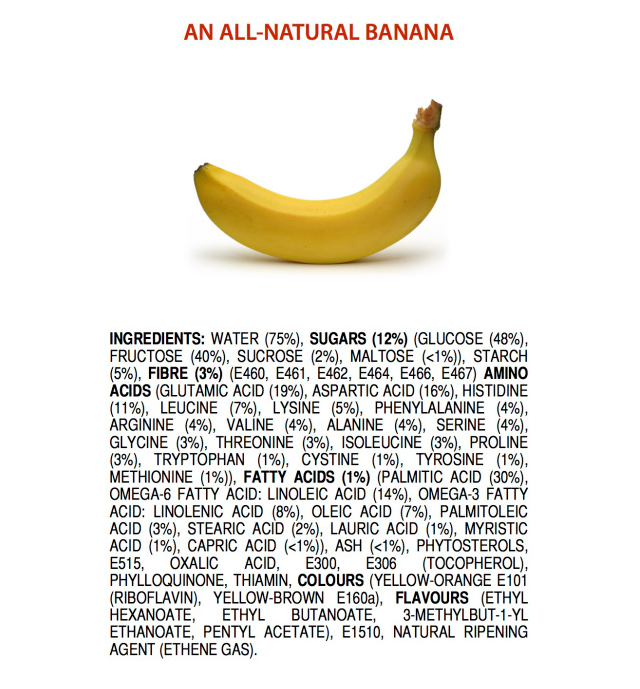Am I a bad person?!
Replies
-
The food you eat does not determine in any way if you are a good or bad person. Unless maybe you're eating kittens and small children.0
-
MamaBirdBoss wrote: »Anyhow, I'm extremely, EXTREMELY suspicious of his dosage rates and more. As one person in the comments notes, the dosage is highly suspect.
http://www.ncbi.nlm.nih.gov/books/NBK50952/
FOOD SAFETY AND PRESERVATION
As mentioned previously, the first major addition of sodium to foods was as salt, which acted to prevent spoilage. Prior to refrigeration, salt was one of the best methods for inhibiting the growth and survival of undesirable microorganisms. Although modern-day advances in food storage and packaging techniques and the speed of transportation have largely diminished this role, salt does remain in widespread use for preventing rapid spoilage (and thus extending product shelf life), creating an inhospitable environment for pathogens, and promoting the growth of desirable micro-organisms in various fermented foods and other products. Other sodium-containing compounds with preservative effects are also used in the food supply.
0 -
RllyGudTweetr wrote: »drivenbonkers wrote: »chandelierbee wrote: »I've been tracking my food and I've realized I eat a lot of processed foods. I'm a vegetarian so it seems as though that's my source of protein besides nuts, like quest bars. Can someone please look into my food diary and tell me, am I putting useless chemicals into my body or what? I've been losing weight but I have a thing for cheese.... I was "milk-less" for a few weeks but forced myself to eat cheese so I can get my protein in but I'm hating the saturated fat. If you see anything processed, I need advise for a healthy alternative or vegetable recipes. I eat leaves mainly because I don't know the nutrition facts of each dish so I'm scared.... Please help me with my fear to cook food and so-called "bad" chemicals.
I have a rule of thumb that I use when grocery shopping; if I can't pronounce the words in the list of ingredients, I don't buy the product.
I try to stick to food that's as close to it's 'real' or 'raw' state as possible. Shop the 'outside' aisles of the grocery store. That's where stores usually stock the least processed foods. Fresh fruit, veggies, meat counter, dairy sections are usually on the outside walls, too. Frozen foods can be 'iffy' for processed, Just watch the package labels.
For example with cheese, I use real cheese that's sold in a solid block (cheddar, mozzarella, blue, etc) not a package of the individually wrapped pre-sliced single types.
I keep a container of diced onions, celery, and colourful peppers on hand in the fridge. It's very versatile: A cup or so of the mix and it's the start of an omlette for breakfast, a bean salad for lunch, and a stir fry for dinner, or toss some greens and it's a side salad. Mixed with protein, and other veggies or salad greens and with a little imagination, the meal possibilites are endless!
Does this food pass your test? Or is this on your list of 'would not buy' foods based on its ingredient list being too hard to pronounce?
I always think that not being able to pronounce an ingredient is a crap reason for not eating something. I mean, do people not remember learning to read? Sound the words out! Most of the polysyllabic ingredients are phoenetically spelled.
Heh, that's what I was just thinking. So if I'm really good at figuring out how to pronounce that kind of word (which I am) than it makes it okay for me, even if not for you? Yay, me. Someone who has issues in that department and can't pronounce, say, durum or semolina should avoid pasta? Also, have you seen the list of cultures on most good yogurts?0
This discussion has been closed.
Categories
- All Categories
- 1.4M Health, Wellness and Goals
- 398.2K Introduce Yourself
- 44.7K Getting Started
- 261K Health and Weight Loss
- 176.4K Food and Nutrition
- 47.7K Recipes
- 233K Fitness and Exercise
- 462 Sleep, Mindfulness and Overall Wellness
- 6.5K Goal: Maintaining Weight
- 8.7K Goal: Gaining Weight and Body Building
- 153.5K Motivation and Support
- 8.4K Challenges
- 1.4K Debate Club
- 96.5K Chit-Chat
- 2.6K Fun and Games
- 4.8K MyFitnessPal Information
- 12 News and Announcements
- 21 MyFitnessPal Academy
- 1.6K Feature Suggestions and Ideas
- 3.2K MyFitnessPal Tech Support Questions


